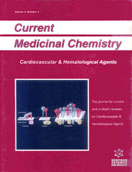Abstract
The importance of membrane transport in normal physiological cell function is unquestionable. However, to what extent alterations in the transport of amino acids are the cause and / or consequence of pathological changes observed in disease states is a question not yet completely clarified. Kinetic experiments with blood cells provide a simple and useful model for researching alterations in amino acid transport. The cationic amino acid L-arginine is the precursor of nitric oxide (NO), a key second messenger involved in functions such as endothelium-dependent vascular relaxation, immune defence and platelet activation. The transport of L-arginine, being rate-limiting for nitric oxide production, is extremely relevant to pathological conditions where NO synthesis and / or actions are affected. The current review provides an overview of L-arginine transport in disease, specifically in uraemia, heart failure, hypertension, diabetes mellitus, septic shock and sickle cell disease.
Keywords: l-arginine, nitric oxide, heart failure, uraemia, hypertension, sepsis, diabetes mellitus, sickle cell disease
Current Medicinal Chemistry - Cardiovascular & Hematological Agents
Title: L-Arginine Transport in Disease
Volume: 2 Issue: 2
Author(s): Antonio Claudio Mendes Ribeiro and Tatiana M. C. Brunini
Affiliation:
Keywords: l-arginine, nitric oxide, heart failure, uraemia, hypertension, sepsis, diabetes mellitus, sickle cell disease
Abstract: The importance of membrane transport in normal physiological cell function is unquestionable. However, to what extent alterations in the transport of amino acids are the cause and / or consequence of pathological changes observed in disease states is a question not yet completely clarified. Kinetic experiments with blood cells provide a simple and useful model for researching alterations in amino acid transport. The cationic amino acid L-arginine is the precursor of nitric oxide (NO), a key second messenger involved in functions such as endothelium-dependent vascular relaxation, immune defence and platelet activation. The transport of L-arginine, being rate-limiting for nitric oxide production, is extremely relevant to pathological conditions where NO synthesis and / or actions are affected. The current review provides an overview of L-arginine transport in disease, specifically in uraemia, heart failure, hypertension, diabetes mellitus, septic shock and sickle cell disease.
Export Options
About this article
Cite this article as:
Ribeiro Claudio Mendes Antonio and Brunini M. C. Tatiana, L-Arginine Transport in Disease, Current Medicinal Chemistry - Cardiovascular & Hematological Agents 2004; 2 (2) . https://dx.doi.org/10.2174/1568016043477288
| DOI https://dx.doi.org/10.2174/1568016043477288 |
Print ISSN 1568-0169 |
| Publisher Name Bentham Science Publisher |
Online ISSN 1875-6174 |
 4
4Related Articles
-
Social Media for Diabetes Health Education - Inclusive or Exclusive?
Current Diabetes Reviews Antioxidant and Anti-inflammatory Properties of Yttrium Oxide Nanoparticles: New Insights into Alleviating Diabetes
Current Diabetes Reviews C-Abl Inhibition; A Novel Therapeutic Target for Parkinson's Disease
CNS & Neurological Disorders - Drug Targets Epigenetics Changes in the RA Synovium
Current Rheumatology Reviews Treatments for Hypertension in Type 2 Diabetes-Non-pharmacological and Pharmacological Measurements<sup>#</sup>
Current Hypertension Reviews Editorial [Hot topic: New Developments in the Treatment and Prevention of Vascular Disease - Part 1 (Executive Editors: N. Katsiki, V.G. Athyros and D.P. Mikhailidis)]
Current Pharmaceutical Design CCR1 and CCR2 Antagonists
Current Topics in Medicinal Chemistry Bombacaceae Between the Ethnomedical Uses and Pharmacological Evidences: A Review
The Natural Products Journal High-Density Lipoprotein: Key Molecule in Cholesterol Efflux and the Prevention of Atherosclerosis
Current Pharmaceutical Design Pharmacogenomic Considerations of the Insertion / Deletion Gene Polymorphism of the Angiotensin I-Converting Enzyme and Coronary Artery Disease
Current Vascular Pharmacology Withdrawal Notice: Ionic Liquid Mediated Synthesis of Schiff bases Bearing Thiazole and Indole Moieties
Current Organic Synthesis Late versus Early Onset Depression in Elderly Patients: Vascular Risk and Cognitive Impairment
Current Aging Science IgA/IgM Responses to Gram-Negative Bacteria are not Associated with Perinatal Depression, but with Physio-somatic Symptoms and Activation of the Tryptophan Catabolite Pathway at the End of Term and Postnatal Anxiety
CNS & Neurological Disorders - Drug Targets Bioactive Compounds Containing Benzoxadiazole, Benzothiadiazole, Benzotriazole
Current Bioactive Compounds Mitochondria Associated Membranes (MAMs): Emerging Drug Targets for Diabetes
Current Medicinal Chemistry Targeting the Secretory Pathway for Anti-Inflammatory Drug Development
Current Topics in Medicinal Chemistry Purinergic Signalling and Endothelium
Current Vascular Pharmacology Other Potential Therapeutic Targets in Thyroid Orbitopathy
Immunology, Endocrine & Metabolic Agents in Medicinal Chemistry (Discontinued) Antipsychotic and Antiepileptic Drugs in Bipolar Disorder: The Importance of Therapeutic Drug Monitoring
Current Medicinal Chemistry Genetic and Molecular Approaches to the Immunopathogenesis of Multiple Sclerosis: An Update
Current Molecular Medicine














